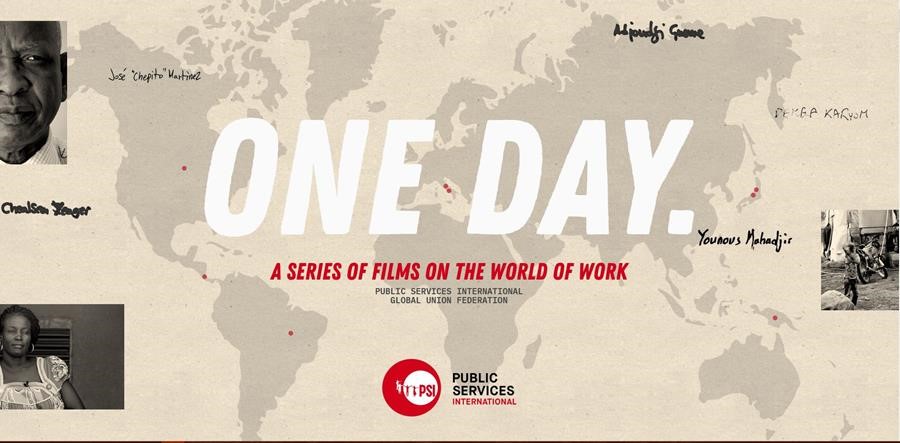On May Day, Public Services International launches a new series to praise the work of public servants around the world.
By Rosa Pavanelli*
These films from the frontline show struggles against privatisation and austerity as well as campaigns for trade union rights, disaster preparedness and access to quality public services.
One of the broadest conclusions from the political shocks of the past few years has been that many people have lost trust in elites. As long as the news cycle fetishes celebrity scandal and 15 minutes of fame over real stories of working people, it is difficult to see how this will change.
In the mainstream media, workers and unions are often presented as impediments to progress – or as ‘anti-everything.’ Perhaps this representation stems from our long-term opposition to neoliberal globalisation and the stagnating wages and skyrocketing inequality it has brought with it.
One of the broadest conclusions from the political shocks of the past few years has been that many people have lost trust in elites.
However, this narrow perspective ignores the everyday achievements and victories of working class people. While a strike might make the news, a nurse or firefighter saving a life or a teacher making a breakthrough with a tough student will not.
As unions, our legitimacy stems from one source only. Our members – workers – whose interests we are charged with advancing. It is our job to ensure that their voices are not side-lined from the conversation any longer.
That is why Public Services International (PSI) has chosen International Workers’ Day to release One Day – a series of films on the world of work , which presents the extraordinary achievements of ordinary public sector workers, the world over.
Featuring 16 stories from nine countries – Philippines, Japan, Indonesia, Italy, USA, Chad, Lebanon, Guatemala and Brazil – these films from the frontline show struggles against privatisation, austerity and neoliberalism and campaigns for trade union rights, disaster preparedness and access to quality public services.
While a strike might make the news, a nurse or firefighter saving a life or a teacher making a breakthrough with a tough student will not.
While their stories may differ, the goal of these public workers is the same: to make their communities better for all – not just for the few. We hear, for example, from Dr Younous in Chad, who fights for his patients’ lives – and against the dictatorship. From Reina Aoki in Japan, who fights fires – and for her right to unionise. And from Georges in Lebanon, who fights to bring water to his community – and for the rights of local refugees.
These are journeys which are rarely reflected in the media and certainly won’t make the evening news. But that is why it is so imperative that they are told.
It’s up to us to pass the megaphone to public sector workers across the world especially when it is no secret that they are constantly under attack.
By sharing these stories we can forge solidarity, showing that workers share the same struggles and can celebrate the same victories.
Like in Turkey, where in the space of 18 months over 152,000 civil servants were dismissed under terrorist legislation. A situation which forced, for instance, Lami Özgen, Co-President of the national confederation KESK from 2011 to 2017, to leave the country after being sentenced to imprisonment for his trade union activities.
Or in Algeria, where government continues to deny legal status to independent unions – especially against PSI affiliates CGATA and SNATEGS.
Or Zimbabwe, where just a few days ago, 16,000 nurses were fired due to their legitimate strike action – impacting directly on members of PSI affiliate Zimbabwe Nurses Association (ZINA).
And it’s not just about media representation. By sharing these stories we can forge solidarity, showing that workers such as Georges, Reina and Younous share the same struggles and can celebrate the same victories. We can present a positive, human vision of union activism, grounded in our grassroots.
The longer elites and experts attempt to ‘explain’ to working class people why things are the way they are, the less they will be listened to. It’s time for them to make some space. It’s time for workers to tell their stories.
*Rosa Pavanelli is general secretary of Public Services International (PSI) and chair of the Council of Global Unions.
Public Services International is a global trade union federation representing 20 million working women and men who deliver vital public services in 150 countries.

